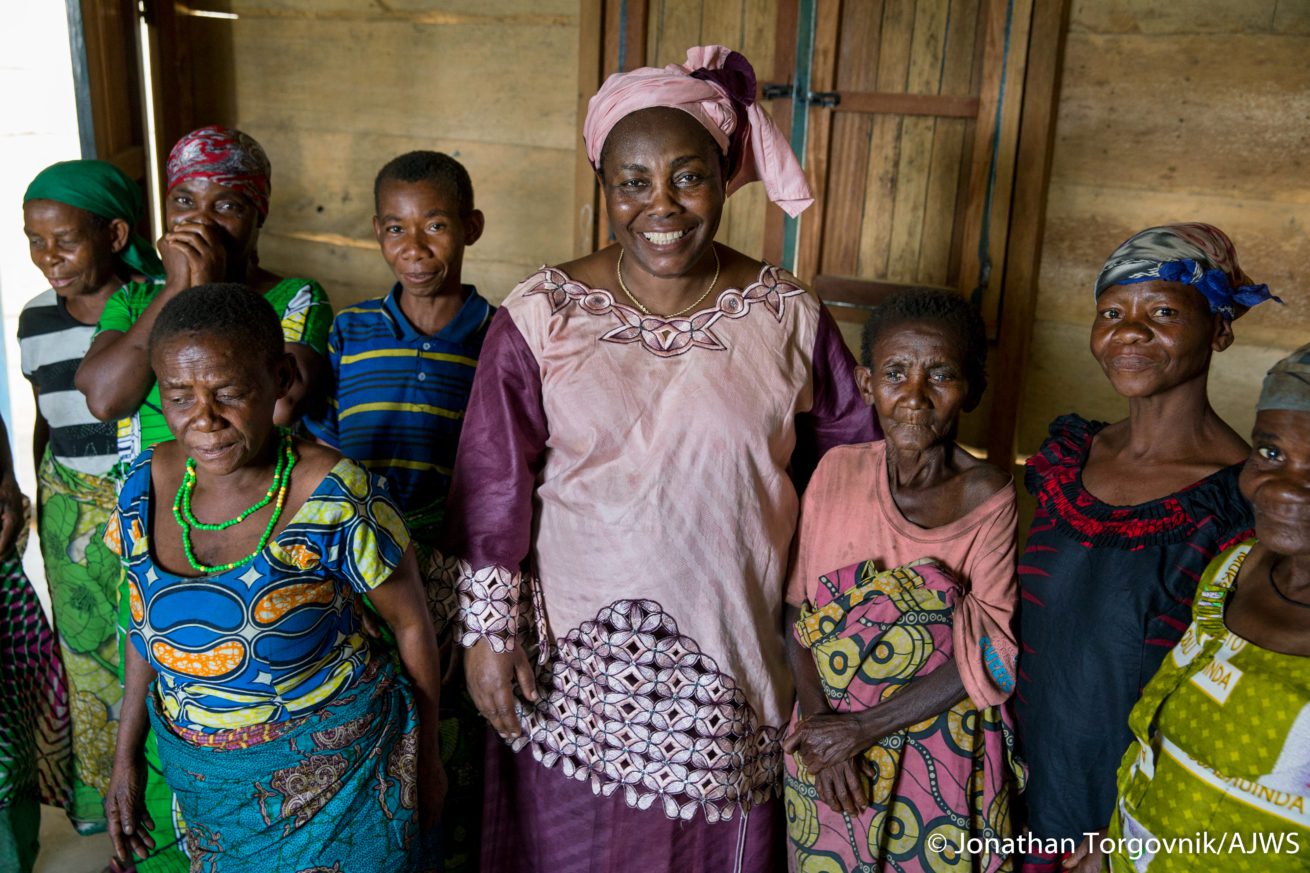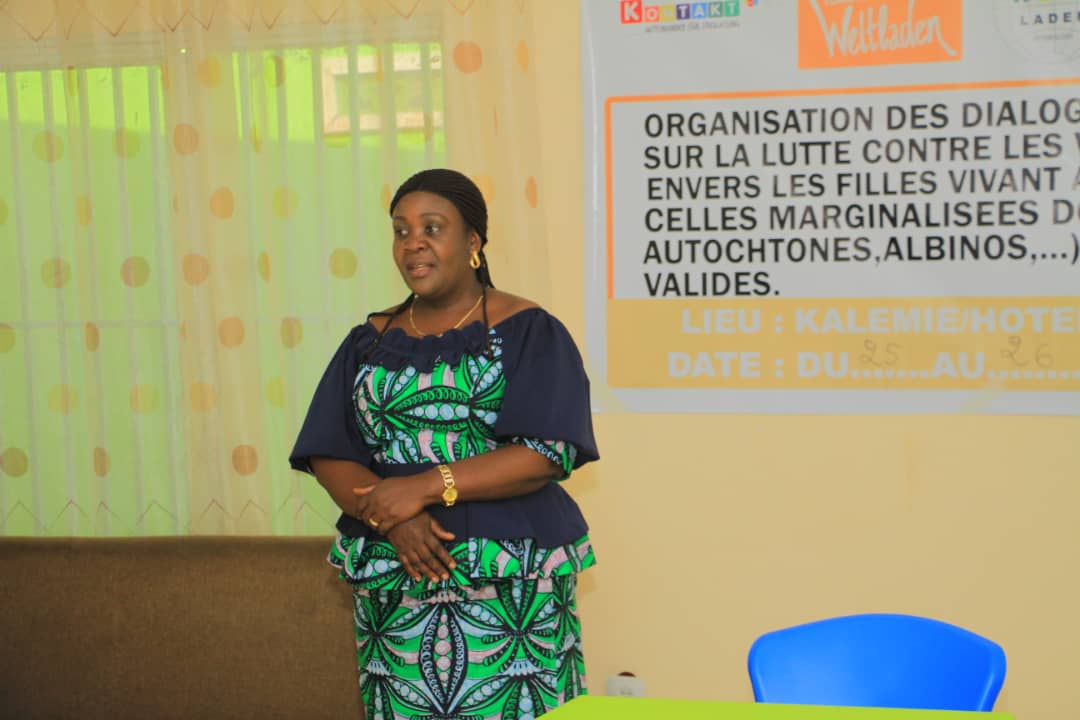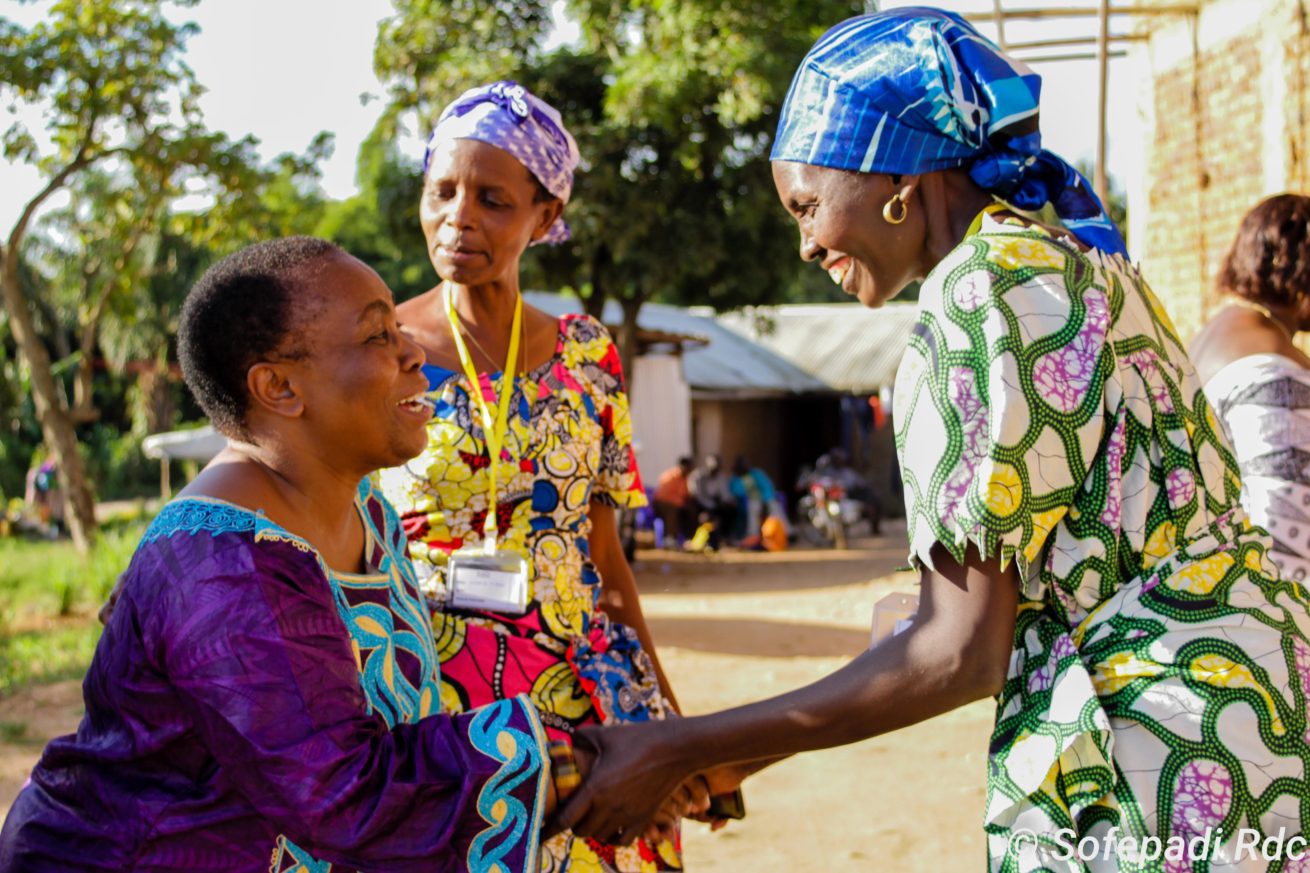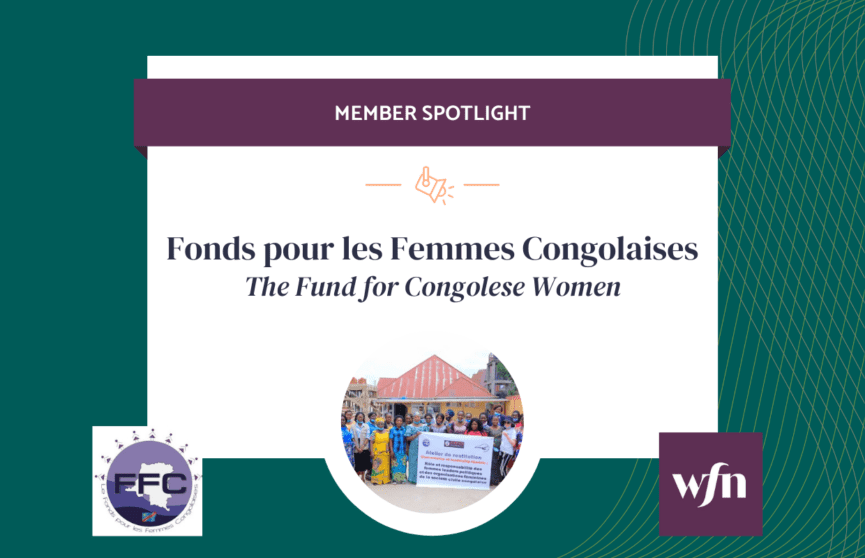International Day for the Elimination of Racial Discrimination highlights the ongoing conflicts across the globe rooted in long-standing racism and intolerance. Our partner in the Congo, Julienne Lusenge, the Executive Director of the Fonds pour les Femmes Congolaises (FFC), is leading the work to dismantle injustice and serve the women and girls most impacted.
March 21 marked The International Day for the Elimination of Racial Discrimination, a day that holds a special significance for me and our work towards equality and justice. As the only women’s foundation in the entire country, Fonds pour les femmes Congolaises, or The Fund for Congolese Women, works toward the vision of a Democratic Republic of Congo without violence, where women and girls have rights to physical integrity and economic justice; and where women participate in all levels of decision-making that affect their lives and communities.
My colleagues, you may be surprised to learn that racial discrimination is a problem in Congo. Despite Article 12 of the Congolese National Law stating that all Congolese are entitled to equal protection, indigenous peoples face multiple challenges; their human rights are frequently violated.
This is why it is important to highlight this day, and the voices of the women in the Congo on the frontlines of this work. FFC addresses these racial inequalities head-on by funding projects that fight discrimination against indigenous women and girls in several provinces. We do this in close connection with local leaders and those most impacted — and I am proud to share with you a few of their voices and experiences.

In North Kivu, where we work with indigenous schoolgirls, a student named Chantal (an alias), shared that:
“The reality is hard. I am supposed to be in the fifth class of secondary school, but I am only in the second class. At school, I am treated like I am evil, like a ‘dirty girl,’ and even as a witch just because I am a Pygmy. I have had so many inner wounds because of how people look and treat me. Each school year I am not able to finish. I always drop out because it becomes too painful. I did not choose to be born pygmy. I also think that I am no different from the Bantus.”
Chantal, student program participant
FFC has been funding grassroots women’s groups for more than a decade as a way to raise community awareness against discrimination faced by marginalized groups. I believe that the International Day Against Racial Discrimination is so important in a world where human beings are working together for the same goals of global sustainable development, and all aspire to collective betterment.
Albertine Kungwa, Focal Point leader and FFC grantee in her province of Tanganyika shares that as the coordinator of the Wapandaji Association, a grantee of FFC, they are relentlessly committed to the fight against sexual and gender-based violence against girls and women as well as to the elimination of racial discrimination (anti-racism) that plagues their society in Tanganyika. Tanganyika is one of the most problematic provinces of the Congo and the most affected by armed conflicts that often drive racial discrimination.
“Tanganyika is inhabited by local peoples, namely the Bantus (majority 85%), the Pygmies (minority 10%), the Nilotics (minority 3%), and foreigners (white, Arab, Sudanese, 2% minority). To address racial and gender discriminations, of which most Congolese are victims, namely women and ethnic minorities (Twas, Tutsis Banyamulenge…), we organize socio-professional activities for their economic empowerment, peaceful cohabitation, and social reintegration.”
Albertine Kungwa, Focal Point leader and FFC grantee in her province of Tanganyika

Albertine continued with these examples of the discrimination and violence these women face:
“An 18-year-old girl, a beneficiary of one of our projects, is from a Twas ethnic (indigenous) minority, and was impregnated by a young man, 21 years old, from a Bantu ethnic majority. The two families started to work together to organize their marriage. Everything was going well until the Bantu family discovered that the girl’s family is of Twas origin. The boy’s family refused the marriage and financial support for the baby, leaving her on her own.”
“A woman who was a beneficiary of a project on peace and conflict transformation (from the conflicts existing between the Banyamulenge herders and the Bantu farmers), was victimized because she is of Tusti Munyamulenge origin (Nilotic people). She was targeted, and three of her cows were killed with a machete by the Bantu in a village close to Kalemie. The poor woman was forced to leave her home to seek security elsewhere. Thankfully, this is now where she lives with her herd of cows to this day.”
Albertine states firmly the importance of having an international day to eliminate racism: “It represents an opportunity to highlight and ban all kinds of racial discrimination. It is a day to remind to all local and international actors that they must engage in the fight to finally eliminate racial discrimination in the province of Tanganyika in particular, and in the world in general.”
My community should be sensitized to end this discrimination against indigenous peoples. For me, gender equality integrates race and marginalized groups, and therefore I support any initiative to fight against racism by celebrating this day with all of you across the globe. Our work here at the FFC funds small local organizations, putting resources directly into the hands of those living the challenges on the frontlines. We fund grassroots organizations that do not have access to financial support from international donors.
I thank this community for doing this work with us, and for being the leaders we need in order to bring peace to the world and to end racism and discrimination.
A Vaillant Ceour,
Julienne Lusenge
Executive Director
The Fonds pour les Femmes Congolaises (FFC)
The Fund for Congolese Women in the Democratic Republic of Congo
2021 International Woman of Courage Awardee from the U.S. Department of State
To learn more about FFC’s critical work in the DRC, click here. To support the FFC, click here.

